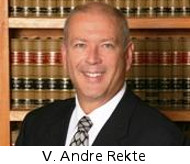2/12/2015
California: Appellate Red Light Camera Ruling Worries RedflexRedflex asks California Supreme Court to depublish a ruling that questions red light camera reliability.

One of California's largest providers of red light camera systems believes a recent Court of Appeal decision spells trouble for the industry. The state's second-highest court found that proof of improper calibration was enough to cast doubt on an automated ticketing machine's reliability (view ruling). Redflex Traffic Systems of Australia asked the state Supreme Court to "depublish" the California v. Rekte decision, effectively erasing it from the books.
"Redflex and its customers would be prejudiced if Rekte were left published, because it would cause confusion in the traffic courts and in the public," Redflex attorney Michael D. Stewart wrote.
Unpublished cases cannot be cited as precedent in a California courtroom. Motorists interested in challenging citations without a published decision in hand would have to repeat from scratch all arguments about evidentiary problems. Redflex fears that easy challenges would lead to a loss of revenue without that legal roadblock.
Redflex insists the appellate court was wrong to side with motorists since the state Supreme court sided with the red light camera industry in California v. Goldsmith (read decision) and California v. Gray (read decision). Redflex also mocked the defendant for hiring an expert to verify the yellow signal timing without actually examining the yellow time of Rekte's alleged violation.
"Mr. Rekte never presented any evidence as to the duration of the yellow light at the time of his specific violation," Stewart wrote. "He only showed that the yellow phase was supposedly too short on dates before and after the date of his violation. Such a showing is too attenuated to rebut the statutory presumption that the video and photos 'constitute an accurate representation of the images they purport to represent.'"
Viktors Andris Rekte successfully beat his $500 ticket for turning right less than a second after it turned red at an intersection in Riverside that had an illegally short yellow warning time. He wants the high court to reject the red light camera industry's attempt to sweep calibration problems under the rug. His attorney also points out that the expert did not review the actual violation because Redflex refused to hand over the original video until very late in the appeals process.
"For many motorists, it may not be apparent that they have triggered an ATES [red light] camera until he or she receives a citation in the mail days or weeks afterwards," D. Scott Elliot, wrote. "For motorists who suspect that they were the target of an ATES camera immediately after seeing the flash go off, it is likely that only a very small percentage would have the presence of mind to find and retain an engineering expert to visit the intersection and take video clips of the yellow light interval on the day of the alleged violation so as to comply with the aforementioned 'attenuation test' articulated by Redflex."
Elliot reminded the court that the intersection where Rekte's car was photographed had the red light turned away from motorists and toward the red light camera, making the signal 40 percent less visible to oncoming traffic. The California Supreme Court will decide whether to leave the case published or not.


